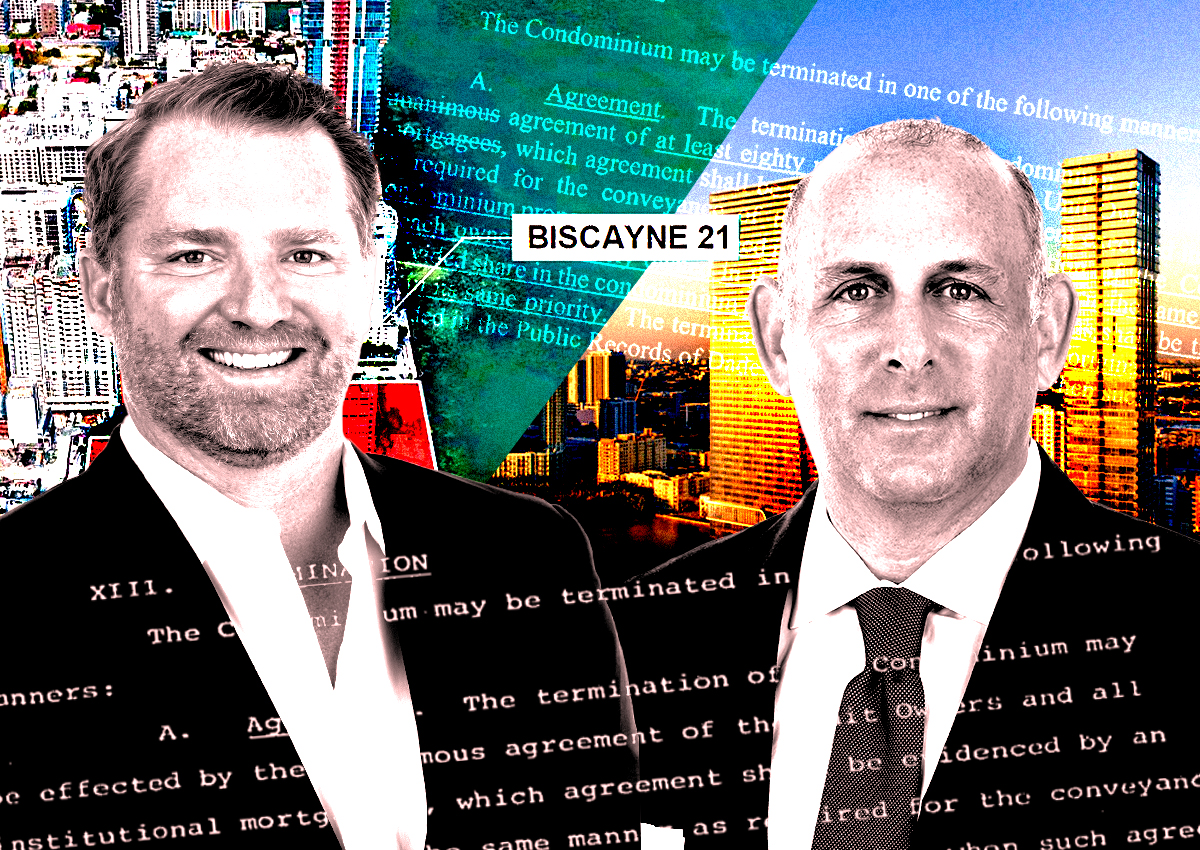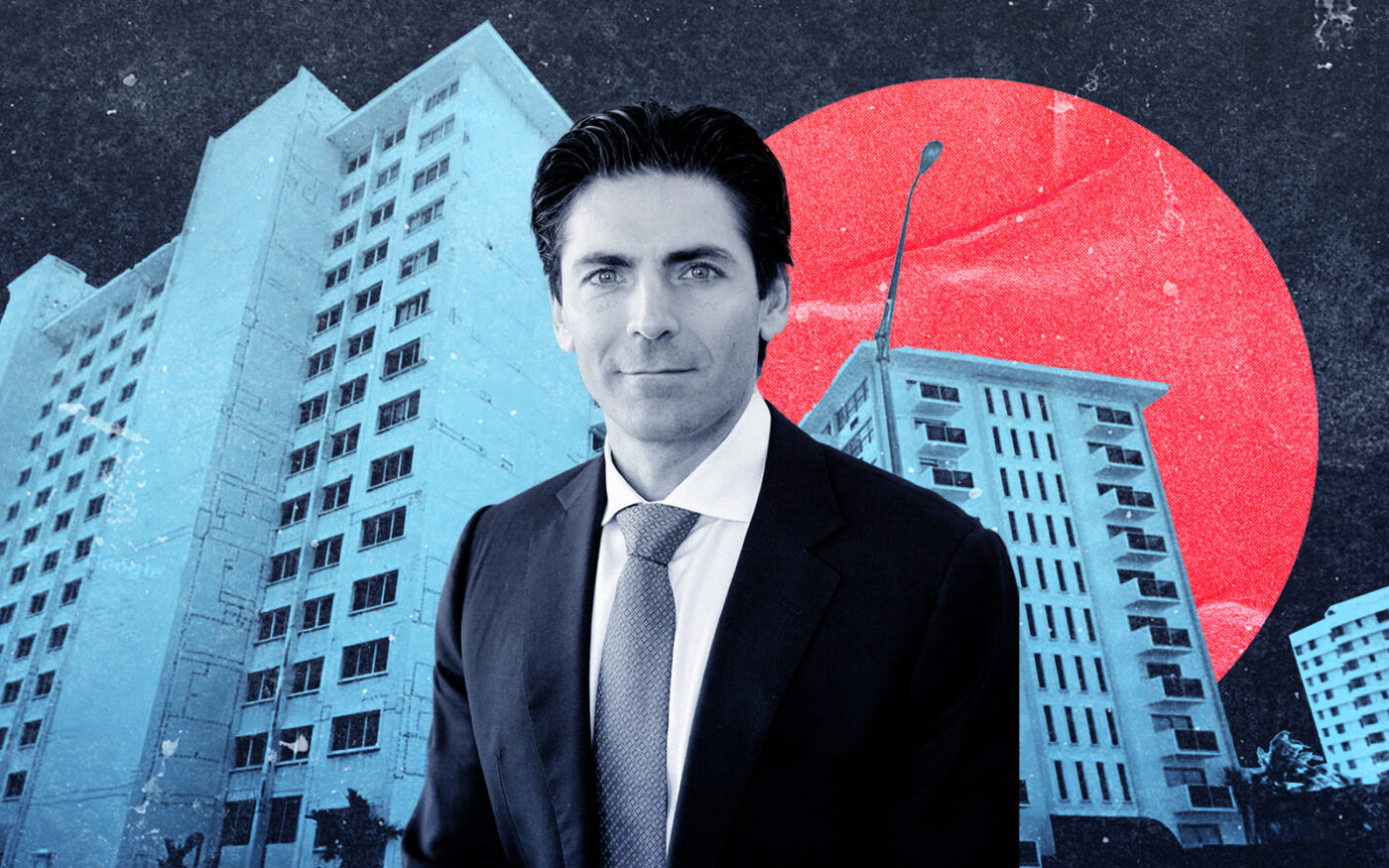A group of unit owners at an oceanfront Miami Beach condo building allege that Mast Capital has dragged out a planned buyout, tying up the majority of residents and leaving them in limbo, The Real Deal has learned.
The fallout at Amethyst highlights what can happen when deals between a major developer and condo owners begin to sour.
In the two and a half years since developer Camilo Miguel Jr.’s firm began negotiating with sellers, Mast Capital has closed on at least seven units at the 11-story, 120-unit condominium at 5313 Collins Avenue, property records show. The developer also owns the site next door, where the La Costa condo building will be torn down to make way for the Perigon, a luxury condo tower Mast will develop with its partner, billionaire Barry Sternlicht’s Starwood Capital Group.
Amethyst unit owners said that Mast Capital planned to close on a majority of the units in November 2022. Some terminated leases with their tenants, while others had their furniture moved, in anticipation of the closing last year.
Mast Capital’s purchase price is roughly $60 million, give or take, for the property, according to sources. An affiliate of the firm has so far paid $235,000 to $480,000 for each of the seven units, ranging from about $300 per square foot to nearly $660 per square foot. All of the units are one-bedrooms. The developer has spent $2.7 million so far.
Conflicting information
Mast’s purchase of Amethyst is tied up by a group of condo owners — originally representing 28 units — that originally had contracts with Jose Canero of the Canero Group, later reassigned to Mast. Mast terminated that arrangement late last year. Those contracts were contingent on each other closing, meaning if Mast acquired one, it had to acquire all — a provision that remains in effect for two years after the cancellation.
Without that group, Mast does not control 80 percent of the building, which means it would not have the required percentage to move forward with the condo termination.
According to owners who spoke with TRD and requested anonymity, the developer exercised extensions, but has not been clear about when it plans to close.
One owner that was not part of the 28 said Mast had engaged in “dirty tricks” and had “manufactured issues” that weren’t serious. Confidentiality clauses in the contracts signed with Mast prevented the unit owners from acknowledging the contracts and discussing them.
Some owners fear that Mast won’t be able to close on the property because of shaky market conditions, and that they will have missed their window to sell.
Attorney Josh Migdal, who is not involved in the deal, said the developer likely doesn’t want to cancel contracts, especially if the sellers are entitled to their deposits. But if the developer is delayed because it can’t secure the financing, sellers could be left in the lurch.
Others allege the delays are a tactic, to force the remaining sellers to come down in price as they face large expenses tied to maintaining the property and meeting its 60-year recertification in March of next year.
Because of the planned buyout, some owners have stopped paying their dues, which has put financial pressure on the association.
“We’re hostage to them,” one owner said. “They want to drain us into bankruptcy.”
Mast Capital did not answer questions about when it plans to close, or respond specifically to the allegations owners made against the company. In a statement, Mast Capital said it continues to work in “earnest and in good faith with the Amethyst community, the vast majority of which want to get this deal done.”
The developer says it remains “confident that we can close on the remaining units over the coming months.”
Mast’s statement also said that many of the owners who agreed to sell have told Mast that they are concerned the building is in “extreme disrepair,” citing two unresolved unsafe structure violations.
Amethyst, built in 1964, passed its 50-year recertification in 2014, and the building was considered structurally and electrically safe for occupation as recently as 2020, according to a letter from Miami Beach Building Director Ana Salgueiro that year. It has one open building violation created in March for water intrusion, according to the city of Miami Beach.
The Mast Capital affiliate actually received two violations for units it owns on the third floor. Those violations are for the unpermitted interior demolition of both units nearly a year ago. Both violations are still open.
The property is zoned RM-3, which allows for buildings of up to 200-feet tall along the oceanfront. The property includes a sliver of land fronting the Intracoastal Waterway that’s adjacent to land owned by Mast, which was part of La Costa.
Bigger picture
The saga at Amethyst is playing out at older waterfront properties across South Florida.
Next door, Mast Capital secured the purchase of units from the majority of owners at the former La Costa building, but had to go through a court-ordered partition sale to acquire the remaining ownership interest in the property. That was finalized this year. By law, most condo associations can be terminated with support from 80 percent of a condominium, but 5 percent can block a termination, which is why developers will often look to secure support of just over 95 percent.
On the site of La Costa, a building that the city declared unsafe after Mast Capital acquired the majority of units, Mast and Starwood plan a 17-story, 73-unit condo building. Asking prices for the units start at just over $4 million and go up to $37 million for the penthouse.
Developers are interested in aging buildings because they sit often on the most desired, primarily beachfront, land. Many of the owners and residents are older and can’t afford the necessary repairs and rising costs to maintain the properties because they are on fixed incomes. It can be a win-win for many — if all goes according to plan.
And even though condo buyouts and terminations aren’t a new trend, developers have doubled down on their efforts in the two years since the deadly collapse of Champlain Towers South in Surfside. New condo safety legislation requires buildings to have a structural integrity reserve study completed, which then determines how much a building has to have in its reserves. It also requires associations to fully fund their reserves by the start of 2025. The law also requires that buildings pass inspections, but those were already required in Miami-Dade County.
That means it has become much more expensive to live in an older condo, especially with mounting insurance costs.
Read more


